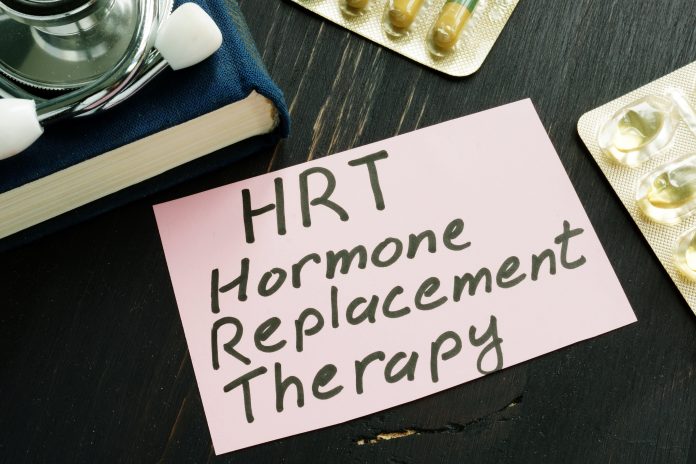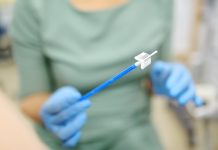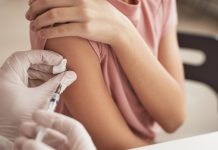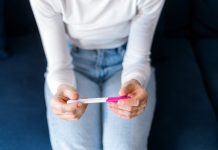Dr Deborah Lee, Dr Fox Online Pharmacy, discusses whether hormone replacement therapy could boost your immune system in the face of the COVID-19 pandemic
How good is your immune system? If you are menopausal, or postmenopausal, you may not be aware that both ageing, and lack of estrogen, affect your immune response. In the face of the COVID-19 pandemic – this is especially topical.
Read on and find out more.
What does the immune system do?
The immune system is a complex network of specialised cells and cell signalling mechanisms. The function of the immune system is to protect your body from a harmful attack. This could be from a single bacterium, a virus, or one for your own cells which is damaged, or dead and requires clearance.
Without a healthy immune system, the human body cannot survive. Your immune system can become weakened for a variety of reasons.
What causes of a weak immune system?
The strength of your immune response naturally deteriorates as you get older – often referred to as ‘immune senescence’. This is why older people seem to have more infections and are more at risk of dying from them, than younger people.
Other medical conditions can cause your immune system to become weak. For example, obesity, drinking excess alcohol or suffering from malnutrition. HIV (the human immunodeficiency virus) also damages the immune system.
Medical conditions such as Type-1 diabetes, Rheumatoid Arthritis, and coeliac disease, are autoimmune conditions, in which your body’s immune system, is mistakenly attacking itself.
There is also a difference between the male and female immune system. The female immune system seems generally stronger and reacts more vigorously to infection – that is – until menopause.
What happens to the immune system at and after menopause?
Estrogen levels start to decline many years before your final menstrual period. This is because your ovaries are gradually becoming less responsive, and eventually, they completely fail.
After menopause, your estrogen levels fall dramatically. They remain around 90% lower than they were in the premenopausal period. Low estrogen levels seem to be associated with a weak immune system. For example, in postmenopausal women, the following observations have been reported in medical studies –
- The CD4/CD8 cell ratio is reduced. CD4 cells are a specific type of lymphocyte – white blood cells – which summon other cells such as macrophages, CD8 lymphocytes and B lymphocytes to fight off an infection.
- There are higher circulating levels of inflammatory cytokines, such as Interleukin- 6 (IL-6), and Tumour Necrosis Factor-alpha (TNF-alpha). These are signs of chronic inflammation (see below). IL-6 has numerous complex functions in the inflammatory response. TNF-alpha is a cytokine with a key role in cell destruction and clearance of dead cells.
- The immune response to infection is slower or impaired. For example, CD4 T and B lymphocytes, and natural killer(NK) cell functions are all reduced.
NK cells are white cells have a specific role in destroying early cancer cells and virally infected cells.
The importance of chronic inflammation, in ageing and age-related disease
Chronic inflammation occurs when acute inflammation has taken place – but failed to switch off.
Acute inflammation occurs when the body recognises a foreign substance or a damaged cell. The cell signalling process leads to a rise in the level of chemical messengers called cytokines. These put out a call for help, summoning much-needed immune cells to kill the organism, and clear away the dead cell.
However, with ageing, this acute process becomes chronic. Persistent high levels of inflammatory cytokines, instead of being protective – now cause long term cell damage. This is all part of the ageing process.
Chronic inflammation is a major underlying cause of medical conditions such as atherosclerosis, obesity, diabetes and Alzheimer’s Disease.
Does estrogen in hormone replacement therapy increase the immune response?
Some medical evidence is now available that this seems to be the case. Below are 2 examples from the literature –
- HRT reverses the changes to the immune system in women after hysterectomy.
In a 2004 study in the Journal of Reproductive Immunology, the authors studied a group of 17 women undergoing a hysterectomy and removal of both ovaries. They took blood samples before surgery, after 30 days, then 30 days after starting estrogen-only hormone replacement – using HRT patches.
The results showed that immediately after surgery, there was a significant decrease in the ratio of CD to CD8 cells, and the levels of cytokines, serum IL-4 and INF-gamma.
After completing 30 days of estrogen replacement, the CD4 to CD8 ratio and levels of INF-alpha had significantly increased. The IL- 4 levels, however, remained unchanged.
The authors concluded that estrogen has an important role in the female immune response.
- A comprehensive medical review concluded that HRT can alter the immune response.
In a 2016 review in the journal Climacteric, the authors reviewed all the research studies on this topic, published 1995-2015. There were 209 studies which met the study criteria for inclusion.
The authors concluded that HRT, taken by women at menopause, can alter the immune response as a result of specific changes to various chemical mediators.
Below are some specific findings –
- Postmenopausal women have higher levels of Tumour Necrosis Factor-alpha (TNFα), Interferon-gamma (IFNγ) and Interleukin-6 (ILN-6) than premenopausal women.
HRT has been shown to reduce the levels of these three cytokines.
- After surgical menopause, women have been found to have a reduced CD4 to CD8 ratio, an increase in the numbers of circulating Natural Killer (NK) cells and a reduced number of B lymphocytes.
HRT has been shown to reverse these changes.
Does HRT affect the vaccine immune response?
HRT and the flu jab
The following study reported that taking HRT lead to an improved vaccination response to a flu jab.
In a 2016 study in the journal PLOS One, the authors studied the response to a standard influenza vaccine, in 3 groups of women.
Group 1 consisted of premenopausal women having regular periods and not using any additional hormones or hormonal contraception. Group 2 were postmenopausal women of at least 2 years duration and who had never taken HRT. Group 3 were postmenopausal women who had had a hysterectomy and were taking estrogen-only HRT.
The study participants were given the influenza vaccine and had blood samples taken on day 1. They then had further samples taken after one week, and again after one month.
The results showed that although numbers of CD4 cells remained lower in the HRT group, other parameters of immune function were improved, such as improved numbers of immature B lymphocytes, reduced T cell cytokine production and a small reduction in levels of IL-6.
The premenopausal women had the best antibody response compared to either of the postmenopausal groups. However, there was a direct correlation noted between blood levels of 17β estradiol in women on HRT, and levels of vaccine-specific, immunoglobulin IgG. IgG is the most common type of antibody found in the blood and has a major role in the recognition of foreign antigens and the cellular defence mechanism.
In the discussion, the authors commented that the increase in immature B lymphocytes post-vaccination is a very positive finding, as these young B cells make up an important reservoir for any infection that the body meets for the first time.
The association between 17β estradiol levels and the increase in vaccine-specific IgG was only seen on day-7 post-vaccination. Similar findings have been seen in mice. The authors suggested that additional estrogen may be beneficial for a good, post-vaccination antibody response, in postmenopausal women.
To summarise
- Evidence suggests that low estrogen levels after menopause, have a negative effect on the immune response. This is because estrogen plays a major role in immune function.
- Estrogen deficiency is associated with reductions in numbers of lymphocytes, and important cytokines and cell mediators involved in the inflammatory response.
- Ageing itself is associated with chronic inflammation.
- HRT seems to reverse some of these changes.
- HRT has been shown to improve the immune response in postmenopausal women, to the flu vaccine.
Final thoughts
There are so many issues to consider when you reach menopause, it can be hard to know what to believe and what to do for the best.
You can do a lot to strengthen your immune system by eating healthily, taking regular exercise, losing weight and getting enough sleep.
Many women are unaware that ageing, and estrogen deficiency at and after menopause, are associated with a weakening of their immune system. Also, that estrogen replacement in HRT can reverse some of these effects.
At the present time, in view of the outbreak of COVID-19, it may be comforting for women on HRT to know this is likely to be a beneficial effect. For anyone considering HRT, this information may perhaps, help you to make a decision.
There are many factors to consider when you choose to start HRT, so you must have an in-depth consultation first, with your doctor.
For more information
- Medical News Today – How the immune system works
- Women’s Health Concern – Top Tips for a Healthy Menopause
- Frontiers in Cardiovascular Medicine 2018 – Source of Chronic Inflammation in Aging












Good post. I learn something totally new and challenging on sites I stumbleupon everyday. It will always be helpful to read articles from other authors and practice something from their sites.
Most doctors are giving women synthetic (non-bioidentical) hormones, which just eliminate the symptoms, but it’s doing nothing to replace the hormones you have lost. HRT boosts our immune system since it replaces the hormones we lost. Without our hormones, we die.